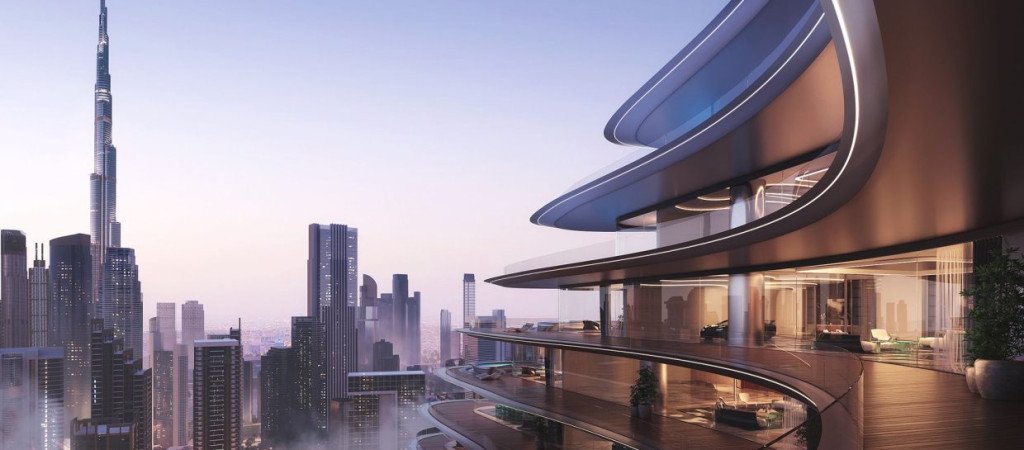
In the ever-evolving landscape of Dubai's real estate market, technology stands as a powerful catalyst, reshaping the industry and providing innovative solutions to age-old challenges. From blockchain to artificial intelligence, the integration of cutting-edge technologies has not only streamlined processes but has also enhanced transparency, efficiency, and overall customer experience. This article explores the multifaceted role of technology in Dubai's real estate sector, highlighting key advancements and their transformative impact.
1. Blockchain: Transforming Transactions and Ownership
Blockchain technology has emerged as a game-changer in Dubai's real estate sector, introducing unparalleled transparency and security to property transactions. The Dubai Land Department's (DLD) initiative, known as the "Blockchain Strategy," aims to fully digitize property-related transactions by 2020. Through blockchain, every step of a real estate transaction, from property listings to finalizing contracts and transferring ownership, becomes tamper-proof, reducing the risk of fraud and ensuring a more efficient and secure process.
2. Artificial Intelligence (AI): Enhancing Efficiency and Decision-Making
Artificial Intelligence has found a significant place in Dubai's real estate sector, streamlining various processes and offering valuable insights. AI-powered chatbots are increasingly being utilized for customer interactions, providing instant responses to inquiries and offering personalized property recommendations. Moreover, AI algorithms analyze vast datasets to predict market trends, helping investors and developers make informed decisions about pricing, demand, and property development strategies.
3. Virtual Reality (VR) and Augmented Reality (AR): Immersive Property Experiences
Dubai's real estate developers have embraced Virtual Reality (VR) and Augmented Reality (AR) technologies to provide potential buyers with immersive and interactive property experiences. Virtual property tours allow prospective buyers to explore homes or commercial spaces remotely, providing a realistic sense of the property's layout, design, and ambiance. AR applications enhance on-site experiences, allowing users to access additional information about properties by simply pointing their smartphones at buildings or specific areas.
4. Proptech Startups: Fostering Innovation
Dubai has become a hub for real estate technology startups, collectively known as Proptech. These startups leverage technology to address various challenges within the real estate sector. For instance, some platforms use data analytics to provide property valuation services, while others focus on simplifying the rental process through digital platforms. The rise of Proptech startups not only fosters innovation but also contributes to the diversification and modernization of Dubai's real estate ecosystem.
5. Smart Cities Initiatives: Integrated Living through Technology
Dubai's ambition to become a smart city has had a profound impact on the real estate sector. The integration of smart technologies in buildings and communities enhances overall livability. Smart home features, such as automated lighting, climate control, and security systems, are becoming standard offerings. Additionally, the development of smart neighborhoods aims to create sustainable and interconnected communities, where technology facilitates efficient resource management and enhances residents' quality of life.
6. E-Government Services: Digitalizing Real Estate Processes
The Dubai government's commitment to digital transformation is evident in its e-government services, which have streamlined many real estate processes. From online property registration to electronic document submission and payment services, these initiatives reduce paperwork, save time, and enhance the overall efficiency of transactions. The move towards a paperless and digitalized real estate environment aligns with Dubai's broader vision for a tech-savvy and user-friendly city.
7. Big Data and Predictive Analytics: Informed Decision-Making
The abundance of data generated within the real estate sector is harnessed through big data analytics, providing valuable insights for stakeholders. Predictive analytics models analyze historical data, market trends, and various other factors to forecast future property values, demand, and investment opportunities. Investors, developers, and real estate professionals can make data-driven decisions, mitigating risks and maximizing returns.
8. Sustainable Technologies: Greening the Real Estate Landscape
Dubai's commitment to sustainability is reflected in the integration of green technologies within the real estate sector. From energy-efficient building designs to the incorporation of renewable energy sources, technology plays a pivotal role in creating environmentally conscious developments. Smart building management systems optimize energy consumption, contributing to the city's goal of reducing its carbon footprint.
In conclusion, technology has become the cornerstone of Dubai's real estate sector, driving innovation, fostering transparency, and enhancing the overall experience for stakeholders. As the city continues to embrace digital transformation, the real estate landscape is poised for further evolution, with technology at the forefront of shaping a more connected, efficient, and sustainable future for Dubai.